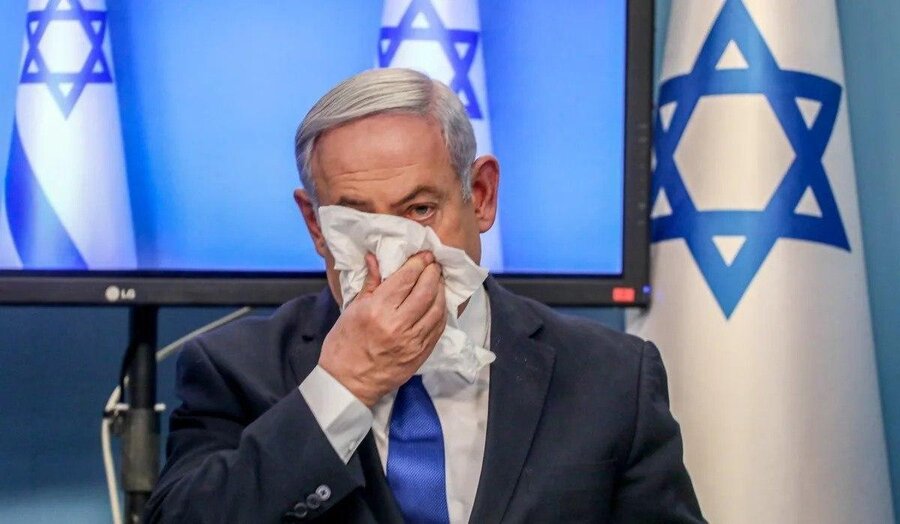Israel’s Prime Minister has rejected domestic and international calls to end the destructive war – instead stressing that his soldiers should not die “in vain”.
Family members of captives held in Gaza have put up tents outside of Israel’s Prime Minister Benjamin Netanyahu’s private home in protest of the stalemate that has stalled the captive release deal with Hamas.
A spokesperson for the Hostages and Missing Families Forum said during the tent protest in West Jerusalem that the campers are set to stay unless Netanyahu reaches a captives release deal, Al Jazeera reports.
On Sunday, Gilad Korenbloom, whose son is being held in Gaza, said his government should “play its part, to propose an agreement, to bring it to a successful conclusion and to bring the remaining [captives] back alive.”
It is estimated that 136 Israeli captives are currently held in the besieged Gaza Strip.
Despite this, Israel bombards the enclave with continuous air, land and sea offensives.
This violent campaign is thought to have killed more than 25,000 people since October 7 and left a further 62,681 injured.
The aggressor’s destruction has also killed at least 153 United Nations staff who were serving Palestinians in need in Gaza, according to a UN Office for the Coordination of Humanitarian Affairs impact report published on Sunday.
During the 19th Non-Aligned Movement summit being held in Kampala on Friday and Saturday, the UN Secretary-General António Guterres remarked that this was a “heartbreaking tragedy” for the intergovernmental organisation, the families of the deceased and those they served in Gaza.
Noting that the sheer scale of carnage wreaked on Gaza since October 7 was “totally unprecedented,” the UN chief added that he would not relent in his calls for a lasting ceasefire.
Despite mounting pressure from his people and the wider international community to bring an end to this devastating war, Netanyahu said he has no intention to relent in the bloodshed.
During a press statement made on Sunday, the Israeli leader said, “I reject outright the terms of surrender of the Hamas monsters in exchange for the release of our [captives].”
The terms tabled by Hamas included a cessation of hostilities and the release of Israeli captives, in exchange for an end to the occupier’s presence in Palestine as well as the release of Palestinian prisoners held in Israel.
According to a November Human Rights Watch report, over 7,000 Palestinians are being held in Israeli detention centres. Many have never been charged with a crime.
Worse still, scores of Palestinian children are unlawfully held being Israeli prisons.
As part of Hamas’ terms, Israel would also have to recognise the resistance movement as the de facto authority over Gaza.
Putting pride before peace, Netanyahu said, “If we agree to this, our soldiers would have fallen in vain.”
Paradoxically, he added that a ceasefire would ensure the security of his citizens.
“I am not prepared to accept such a mortal blow to the security of Israel; therefore, we will not agree to this,” he said, despite a history of his army fatally shooting their captives.
Meanwhile, on Saturday, reports emerged via social media of Israeli planes dropping leaflets over Khan Younis with the names and photographs of at least 69 Israelis taken captive.
In the leaflets, Israel demanded Palestinians to come forward with information about their captives being held in the Strip, with a note that read in Arabic saying, “Do you want to return back home? Report [to us] if you recognise any of them.”
Observers have cited this stipulation as Israel enforcing collective punishment on the 1.7 million Palestinians it has displaced internally with brute force.
“So, although their abduction had nothing to do with them Palestinian citizens are being collectively punished (war crime),” one social media user commented.
“They are asking people’s help because they are unable to get to their hostages because of the resistance,” said Abu Ali, a north Gaza resident.
“End the war, Netanyahu, and get your people back,” he told Reuters.
Andreas Krieg, a war expert at King’s College London, also urged Netanyahu to withdraw his troops from Gaza.
Speaking to the New York Times on Saturday, Krieg said continued aggression from Israel would achieve very little: “It is an unwinnable war.
“Most of the time when you are in an unwinnable war, you realise that at some point — and you withdraw,” he added.
Yet, Netanyahu has vowed to continue horrific expansionism despite coming up against “great international and domestic pressure.”







